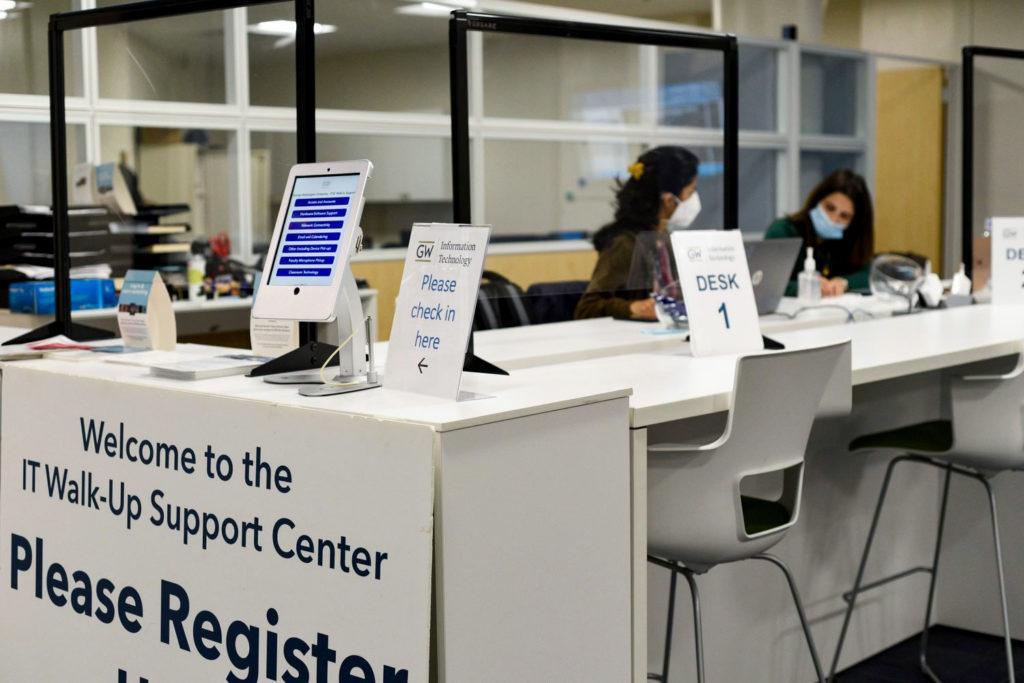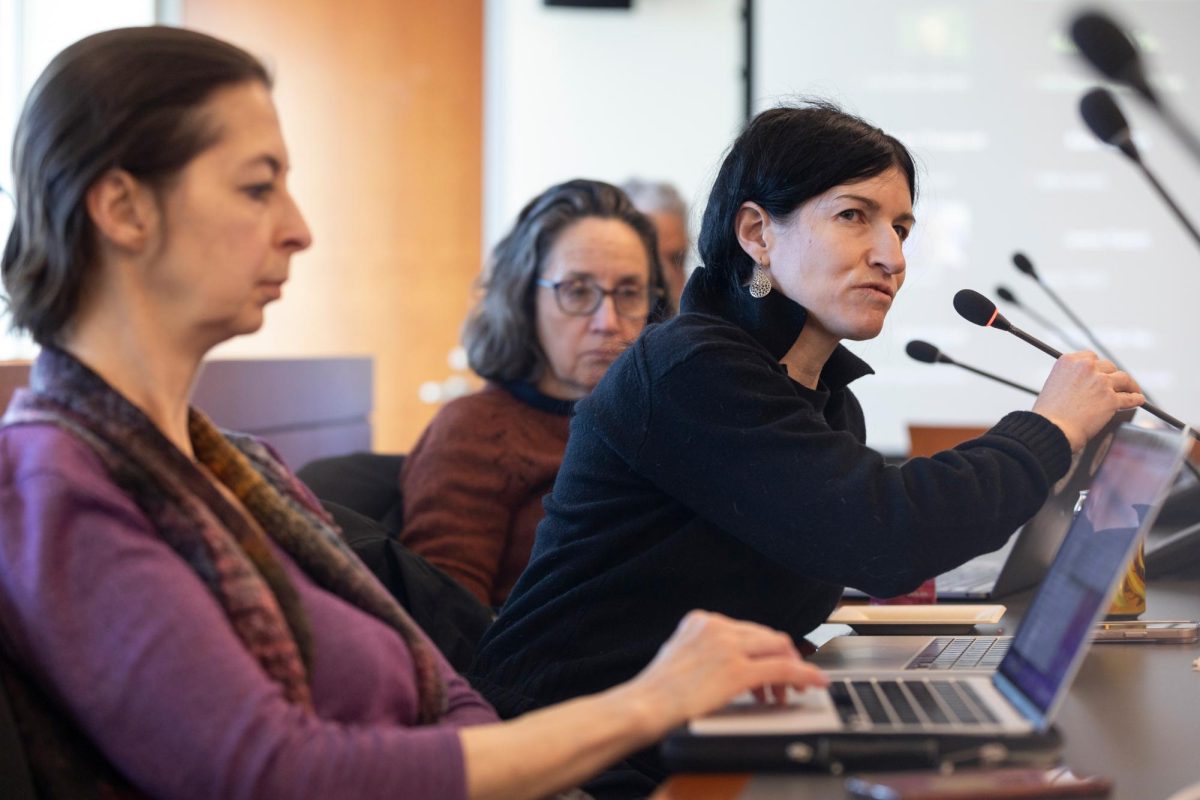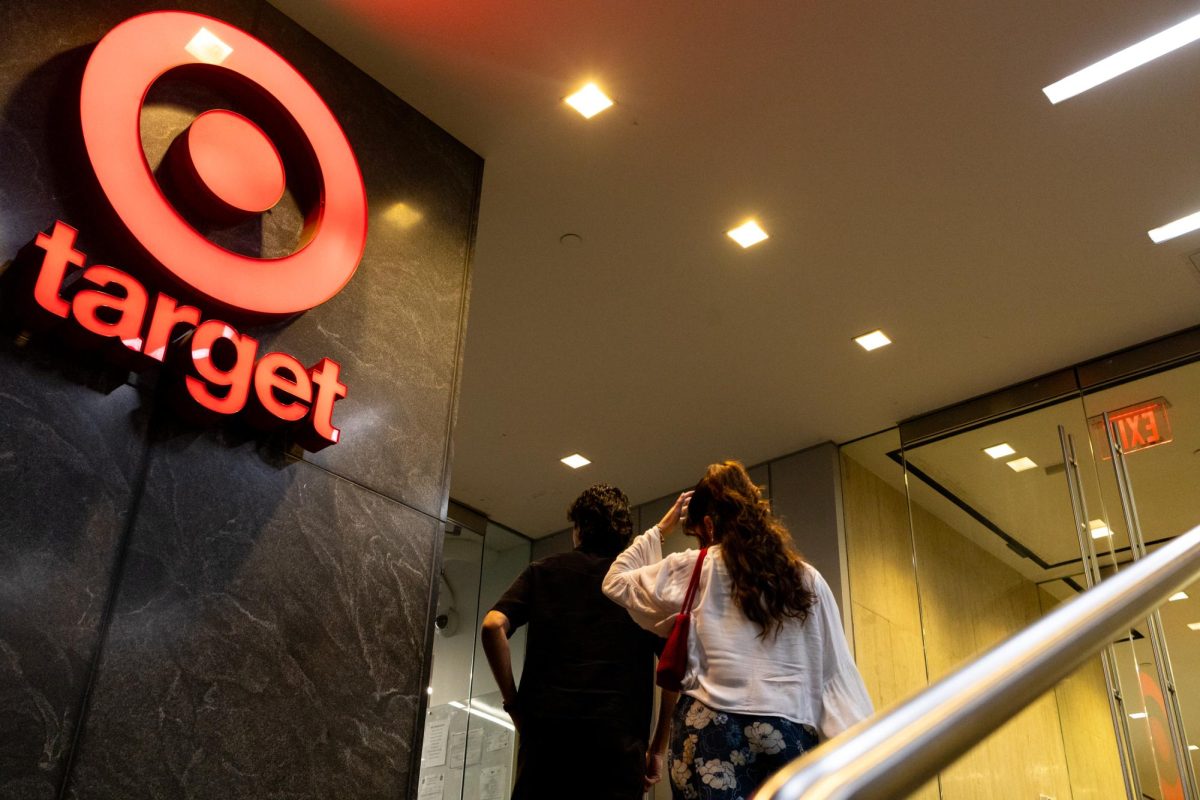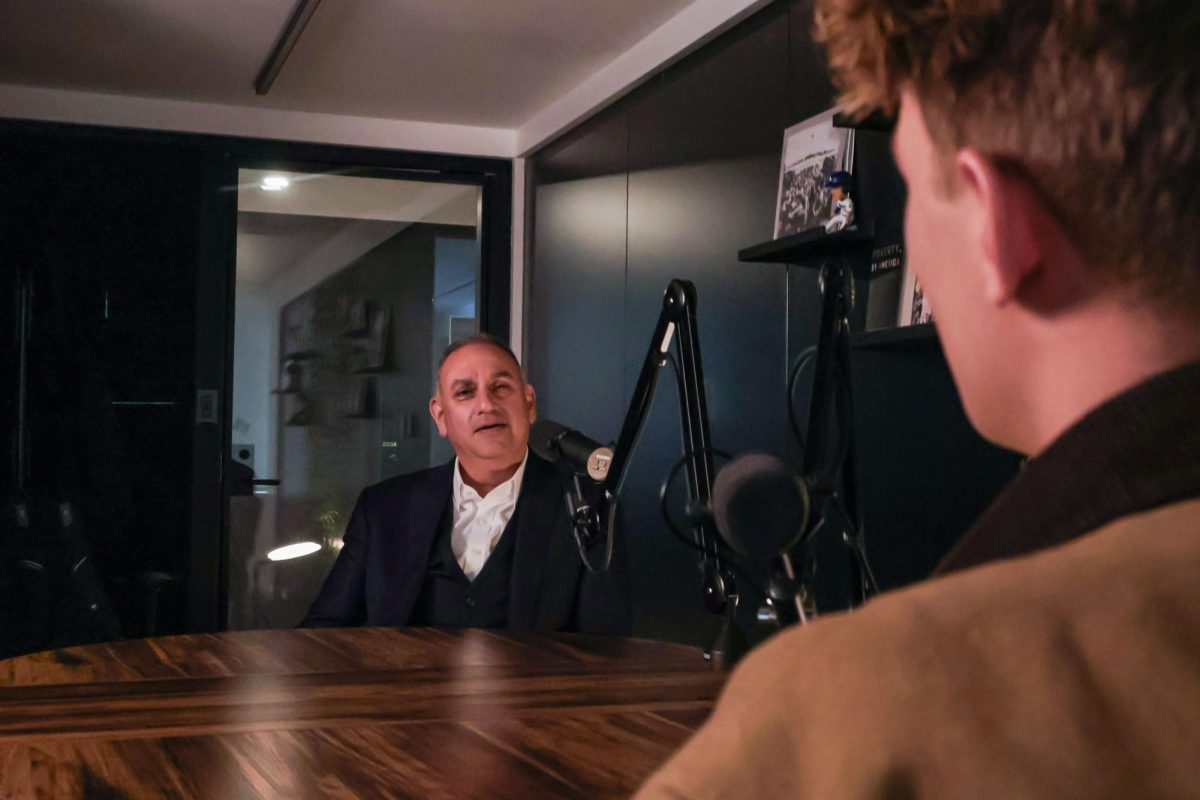Two students are suing the Board of Trustees to refund tuition payments following the University’s switch to online classes, the second lawsuit demanding tuition refunds this spring.
In a 19-page complaint filed in D.C. District Court Thursday, rising second-year graduate student Margaret Mauldin and senior Charafeddine Zaitoun allege the University did not provide the on-campus education and facilities it guaranteed in exchange for tuition payments. Mauldin and Zaitoun are requesting the University partially refund tuition and fees for all students who submitted payments for the spring 2020 semester.
“Despite failing to fulfill its obligations, Defendant is currently unlawfully retaining and refusing to fully or partially refund Plaintiffs’ Spring 2020 semester tuition and fees, despite the dramatically lower quality and less valuable education and services now being provided,” the complaint states.
The lawsuit follows another complaint a parent filed last month, pressuring the University to refund tuition, fees and room and board payments because of a decline in “academic rigor” and the cancellation of on-campus services during the virtual learning period.
The students’ lawsuit states that the University breached its contract that promises students on-campus education and resources like classroom facilities and dining options, which students can no longer access during campus’s closure. Students like Mauldin and Zaitoun were “deprived of the education experience” they were entitled to receive through their tuition payments, according to the complaint.
“Plaintiffs and the other members of the Class entered into binding contracts with Defendant, which provided that Plaintiff and the other members of the Class would pay tuition and fees, to GW, in exchange for on-campus educational, social and other experiences and access to facilities,” the complaint states.
Mauldin and Zaitoun allege students have withstood an “enormous windfall” under the financial strain that has afflicted working students and their families during the COVID-19 pandemic after the University cut access to on-campus buildings, technology and other services guaranteed through tuition payments. The lawsuit states the payments benefited the University, which failed to return the on-campus resources students expected to receive.
“Defendant is thus profiting from COVID-19 while further burdening students and their families – many of whom have been laid off, become ill, lost loved ones or are otherwise already bearing the brunt of the COVID-19 pandemic,” the complaint states.
The lawsuit states students received a “second-rate online substitute” for in-person education because faculty did not have enough time to learn how to teach a quality curriculum through the new online format.
The lawsuit references an article from Educause, a nonprofit organization working to improve virtual education, that states it is “impossible” for teachers to completely understand how to conduct online teaching if they shift to a virtual platform within just a few weeks. The article states schools should take six to nine months to prepare for an online course.
GW began online classes less than two weeks after announcing the switch.
“The hasty conversion to ‘virtual learning’ has not and cannot compare to live classes,” the complaint states. “But it doesn’t compare to well-planned and executed online courses either.”
Mauldin, who is pursuing a master’s degree in museum studies, decided to attend GW because of the University’s connection to the Smithsonian museums, which offer field trips and “peer-reviewed classes,” according to the lawsuit. The lawsuit states she completed a Smithsonian internship remotely, despite paying “the high cost of graduate tuition” to receive in-person credit at the museum.
“She is not receiving what she bargained for,” the complaint states.
Mauldin declined to comment.
Zaitoun rented an apartment with a $1,650 monthly fee near campus to take classes as part of the University’s summer 2020 session but will pay more than $10,000 for Zoom classes, “with no access to professors, other classmates or campus facilities or resources,” the complaint states.
Zaitoun did not return a request for comment.
University spokeswoman Crystal Nosal said “other University revenues” subsidize students’ tuition to cover the cost of providing curricular and co-curricular programming to students. She said officials understand students did not expect to finish spring semester classes online, but the University followed advice from “public health experts” in deciding to switch to virtual learning.
“Our faculty worked hard to provide our students with a quality academic experience by distance, and our staff too worked hard to provide mechanisms for students to meaningfully engage with each other,” she said.
Nosal said officials have offered students refunds for housing, dining, parking and international program fees after campus closed in March. She said the University is granting students the entirety of GW’s $9.1 million aid package from CARES Act funding and providing additional financial support through the GW Cares Student Assistance Fund.
“We continue to work with students and families who are in financial distress due to the coronavirus pandemic,” she said.
More than 75 higher education groups, at least three of which list GW as a member institution, signed a letter to Congress last week asking for temporary liability protections for universities facing lawsuits related to the pandemic.
Glen Abramson – the legal counsel for Mauldin, Zaitoun and the University’s student population represented in the class action – said the “online course experience” does not match the on-campus college experience the University markets to prospective students. He said students are not receiving marketed services during the pandemic, even though the University promised these resources as part of the school’s tuition.
“GW is acting as if the emergency online classes they put together are the same as live classes on campus,” he said. “That’s just not the case.”
Abramson said his law firm, Berger Montague, has represented students from Boston University, the University of Southern California and the University of California in similar class action lawsuits demanding tuition repayments. He said “hundreds of students” have contacted the firm, upset about paying for online classes.
“This is something that I think a lot of students have had concerns about, and I think there are going to be cases filed against many colleges and universities around the country,” he said.
Students have filed more than 110 class action lawsuits against universities in the two months since spring instruction transitioned online, according to a National Law Journal report.
He said the firm is working with “experts” to determine the amount of refunded tuition the legal team will request from the University.
Grace Speights, the Board of Trustees chair, announced last month that officials would not change next year’s tuition if classes are held online in the fall.










